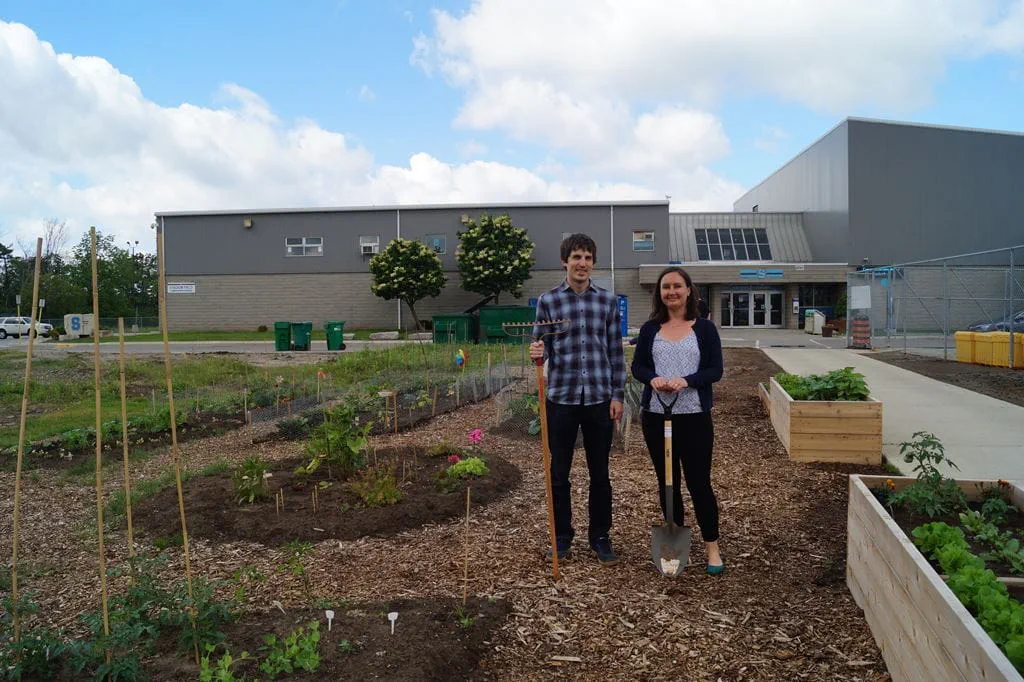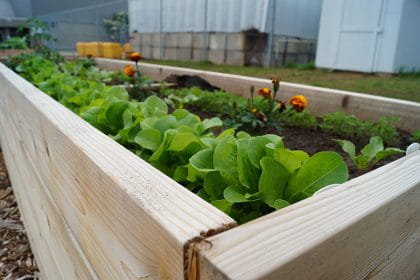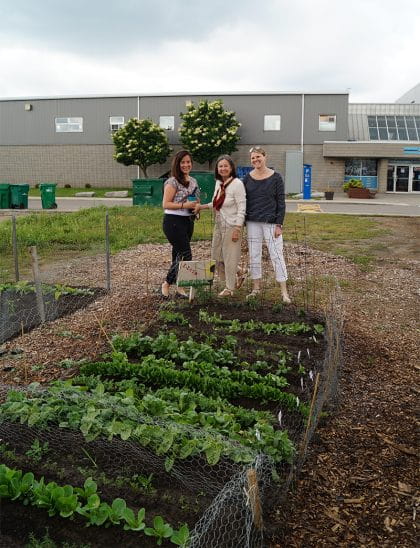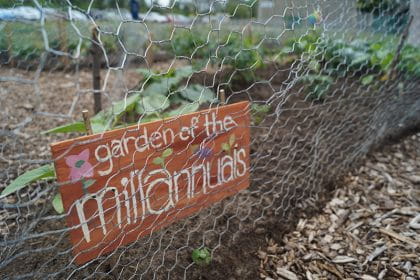
Good things grow at Sheridan
 by Keiko Kataoka – Jul 10, 2017
by Keiko Kataoka – Jul 10, 2017 Tucked behind the A-wing on the path to the Trafalgar Campus Athletics Building lies the Sheridan Community Garden. Rain or shine, if you’re passing by, you’ll likely spot at least one of the 53 participating gardeners tending to their plots – weeding, watering or admiring the progress of the vegetables and flowers.

The Sheridan Community Garden Project is a grassroots initiative launched in early 2016 by a committee that includes employees Jessica Carey, Jessica Derreck, Anna Pautler, Andrew Staples, and Michelle Szabo with Nathan Nettleton and Matthew Sanche joining the team the following year. A single garden tended to by a team of volunteers has grown – with the support of grants from the Sheridan President’s Creative Challenge for Wellness and TD Friends of the Environment – to a campus-wide undertaking that includes an application process and a Sheridan Community Garden Handbook.

Nettleton, Sheridan’s Facilities Project Technologist, is behind the thoughtful design of the garden. A circular pollinator patch of flowers adds a punch of colour to the centre of the space and aims to attract bees, butterflies and insects. Surrounding it is a combination of farm beds and accessible, raised plots in cedar boxes. Nearby is a storage shed for gardening tools, a compost station for weeds and a hose/water source.
“The space fosters collaboration, encourages sustainable gardening practices and provides experiential learning opportunities,” says Staples, Embedded Student Advisor, Student Affairs and Faculty of Humanities and Social Sciences. It’s also a tangible example of Sheridan’s institutional commitment to integrating sustainability in all aspects of campus activities and operations.
Any employee or student is welcome to participate in the initiative whether a new or experienced gardener. They’re expected to commit approximately 15 minutes, five to seven times per week, to weed, water, prune and harvest crops. It’s a welcome opportunity for those looking for a healthy break from studying or working, some relief from the high cost of organic produce at stores, and for apartment and condo dwellers, it may be their only opportunity to garden in an outdoor space.

What’s yielded from the garden can be divided and enjoyed by team members. This year’s crop includes basil, kale, lettuce, beets, bok choy, tomatoes, okra, radishes, beans, peas, and a variety of peppers – just to name a few. Many of these herbs and vegetables came from donated seeds so participants incur little to no expense. Some teams have opted to use chicken wire to keep local wildlife at bay and add personal touches like pinwheels and wooden ornaments. A few have created their own signs like the student group who form “The Millannuals” or the Student Affairs team of “E-I-E-I-O” (paying homage to Old MacDonald).
“We’re meeting our goals of offering a space that promotes wellness and experiential learning, all while beautifying our campus.” – Anna Pautler
“We’ve received a positive response not only from our participants, many of whom are looking for even more space to garden next year – but from neighbours passing through campus,” says Anna Pautler, Sustainability Data Assessment & Reporting Officer at Sheridan and a gardener with the Garden Gnom-Gnom-Gnommies team. “We’re meeting our goals of offering a space that promotes wellness and experiential learning, all while beautifying our campus.”
If you’re interested in learning more about the Sheridan Community Garden, getting involved or donating seeds, email the committee at communitygarden@sheridancollege.ca.
Pictured at top of page: Sheridan Community Garden Committee members Andrew Staples, Student Advisor in the Faculty of Humanities and Social Sciences and Anna Pautler, Sustainability Data Assessment and Reporting Officer.
Written by: Keiko Kataoka, Manager, Communications and Public Relations at Sheridan.
Media Contact
For media inquiries, contact Sheridan’s Communications and Public Relations team.





